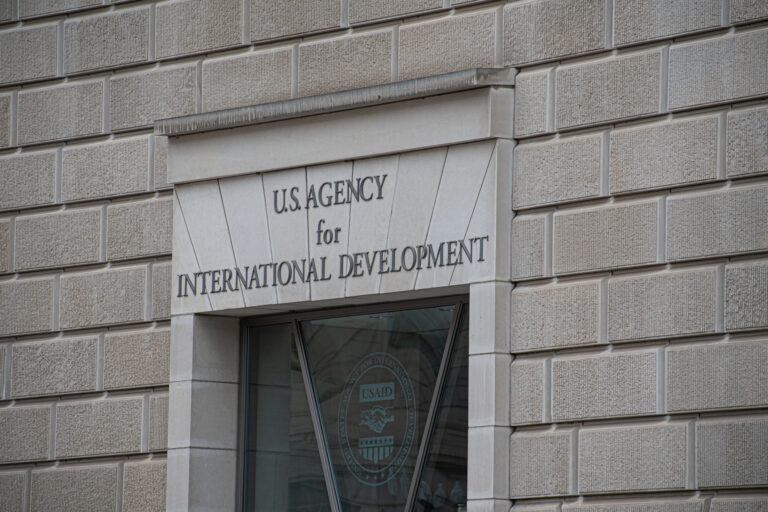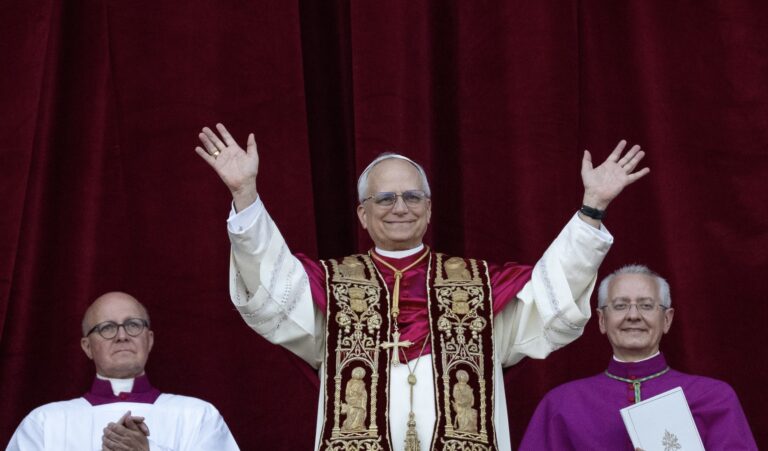On February 14, I testified before the U.S. Congress. The occasion was a subcommittee hearing called by Congressman Henry Hyde (R.-Ill.), who chairs the International Relations Committee of the U.S. House of Representatives. My topic was China, and the question I posed to Congressman Dana Rohrabacher (R.-Calif.), who presided over the hearing, was this: Does the People’s Republic of China have a grand strategy of hegemony? Let me share some of the high points with you.
China in Question
I began by pointing out that both the Secretary of Defense and the Secretary of State have recently raised questions about the PRC’s strategic intentions. Secretary Rumsfeld, attending an Asian security conference this past summer, put the issue as follows: “Since no nation threatens China, why this growing investment [in the military]? Why these continuing large weapons purchases?” More recently, on the occasion of President Bush’s trip to China, Secretary of State Condoleeza Rice remarked that “one has to be concerned” about China’s modernization of its multi-million-man army. “There’s a question of intent.” she said.
PRC’s Intentions
Precisely what are the People’s Republic of China’s intentions? In one sense, this question answers itself, of course. No country that is not facing a serious military threat maintains a 3.2-million man military, increases its military budget at a double-digit clip well in excess of growth in GNP, and vigorously upgrades its military technology and hardware — unless it intends to use brute force, or the threat of force, to accomplish certain domestic and international ends.
But what ends? At home, Beijing’s huge military is intended to frighten the Chinese people into continued submission. The one-child policy would never have succeeded if the People’s Liberation Army did not have a monopoly on guns in China — and if it had not repeatedly demonstrated, at Tiananmen Square and elsewhere, a willingness to use them on protesters of all stripes.
China’s International Aims
Abroad, China has a strategy of intimidation, of expansion, of assertiveness, and ultimately of domination on a global scale. It is a strategy to overtake, surpass, and ultimately eclipse the reigning superpower, the United States of America. I have written a book, called Hegemon: China’s Plan to Dominate Asia and the World, whose title says it all.
Recently some remarkable statements made by the late Chairman Mao have come to light that indicate that the PRC had such a strategy of global domination from the earliest days of its existence. “We must control the earth,” the Founder of the still-Communist People’s Republic of China told his inner circle in 1956. Two years later, at a meeting of his provincial governors, he remarked that “In the future we will set up the Earth Control Committee, and make a uniform plan for the Earth.” He exhorted his generals to conquest as well, saying: “Now the Pacific Ocean [in Chinese, Taiping Yang or “The Ocean of Peace”] is not peaceful. It can only be peaceful when we take it over.”
Mao dominated China. He intended to dominate the world.
Mao’s Legacy
As we know from our own history, the character of a country’s founder deeply influences her future course, even hundreds of years following his death. Mao passed from the scene less than 30 years ago. His portrait still dominates Tiananmen Square, and his body lies embalmed there. His picture adorns the currency. His popular cult is thriving. More to the point, his political legacy has been mostly affirmed. He was, in the definitive judgment of his successor, Deng Xiaoping, “70% good, 30% bad.”
On balance, I told the congressional subcommittee, the evidence suggests that Mao’s grand strategy of hegemony has been vigorously embraced by his successors. At the same time, these men are enormously more sophisticated than Mao in understanding and acquiring the industrial, technological, and military means to realize such a strategy. Fifty years later, the thought of an “Earth Control Committee” — based in Beijing and controlled by the CCP — does not amuse.
Unlike the Third Reich of Adolf Hitler, the Soviet Union of Joseph Stalin, and the Democratic Kampuchea of Pol Pot, the People’s Republic of China of Mao Zedong survives to the present day, its ruling party intact, its system of government largely unchanged. The myths and lies that continue to prop up Mao’s image also bolster the claims of the People’s Republic of China itself to political legitimacy. The current Communist leadership proudly declares itself to be Mao’s heirs, maintains his Leninist dictatorship, continues his military build-up, and cherishes his grand ambitions.
Our Future with China
All this suggests a PRC that has, in combination, the historical grievances of a Weimar Republic, the paranoid nationalism of a revolutionary Islamic state, and the hegemonic ambitions of a Soviet Union at the height of its power. As China grows more powerful and attempts to rectify those grievances and act out those ambitions, she will cast an ever-lengthening shadow over Asia and the world.
I am glad that at least some in Congress are listening.







